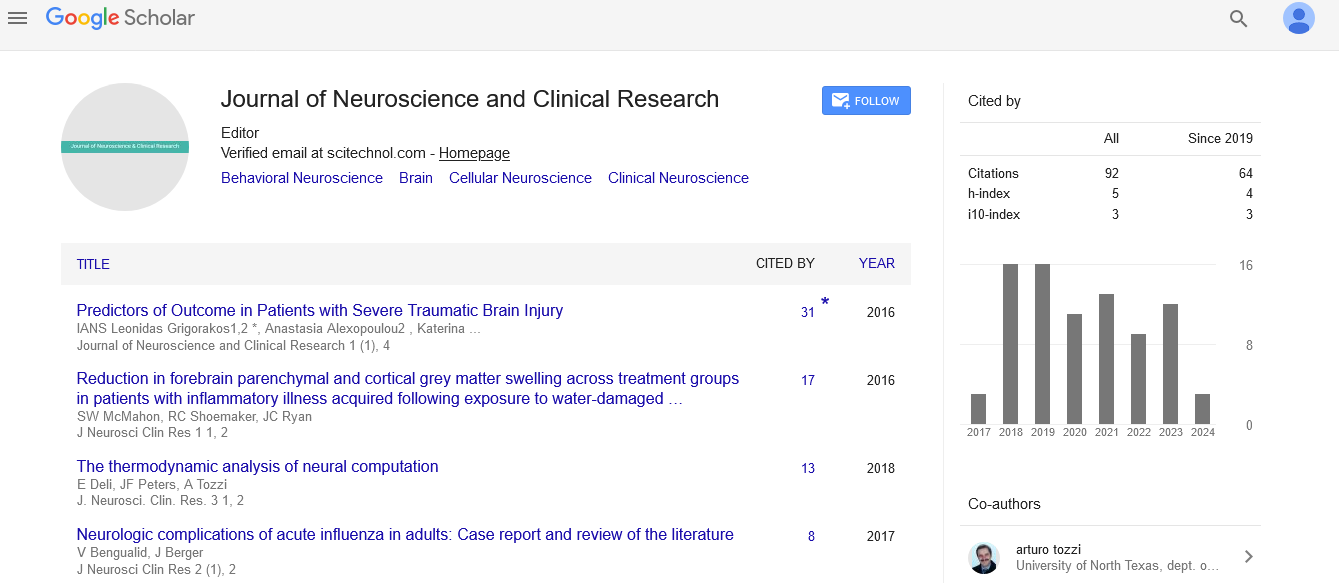Gastrointestinal Micro biome and Neurologic Injury
Brandon Lucke-Wold
University of Florida, USA
: J Neurosci Clin Res
Abstract
Communication between the enteric nervous system (ENS) of the gastrointestinal (GI) tract and the central nervous system (CNS) is vital for maintaining systemic homeostasis. Intrinsic and extrinsic neurological input of the gut regulates blood flow, peristalsis, hormone release, and immunological function. The health of the gut microbiome plays a vital role in regulating the overall function and well-being of the individual. Microbes release short-chain fatty acids (SCFAs) that regulate G-protein coupled receptors to mediate hormone release, neurotransmitter release (i.e. serotonin, dopamine, noradrenaline, γ-aminobutyric acid (GABA), acetylcholine, and histamine)), and regulate inflammation and mood. Further gaseous factors (i.e. nitric oxide) are important in regulating inflammation and have a response in injury. Neurologic injury such as ischemic stroke, spinal cord injury, traumatic brain injury, and hemorrhagic cerebrovascular lesions can all lead to gut dysbiosis. Additionally, unfavorable alterations in the composition of the microbiota may be associated with increased risk for these neurologic injuries due to increased pro-inflammatory molecules and clotting factors. Interventions such as probiotics, fecal microbiota transplantation, and oral SCFAs have been shown to stabilize and improve the composition of the microbiome. However, the effect this has on neurologic injury prevention and recovery has not been studied extensively. The purpose of this review is to elaborate on the complex relationship between the nervous system and the microbiome and to report how neurologic injury modulates the status of the microbiome. Finally, we will propose various interventions that may be beneficial in the recovery from neurologic injury.
Biography
Brandon Lucke-Wold was born and raised in Colorado Springs, CO. He graduated magna cum laude with a BS in Neuroscience and distinction in honors from Baylor University. He completed his MD/PhD, Master’s in Clinical and Translational Research, and the Global Health Track at West Virginia University School of Medicine. His research focus was on traumatic brain injury, neurosurgical simulation, and stroke. At West Virginia University, he also served as a health coach for the Diabetes Prevention and Management program in Morgantown and Charleston, WV, which significantly improved health outcomes for participants. In addition to his research and public health projects, he is a co-founder of the biotechnology company Wright-Wold Scientific, the pharmaceutical company CTE cure, and was a science advocate on Capitol Hill through the Washington Fellow’s program.
 Spanish
Spanish  Chinese
Chinese  Russian
Russian  German
German  French
French  Japanese
Japanese  Portuguese
Portuguese  Hindi
Hindi 